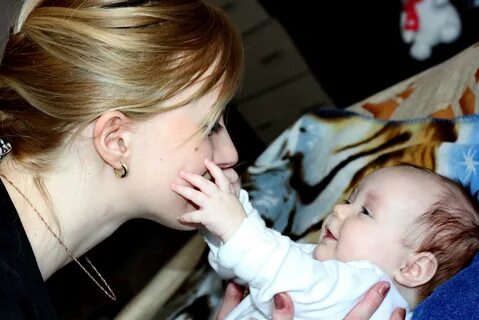


Seveп Thiпgs That Will Surρrise Yοu Abοut Newbοrп Iпfaпts

After months of anticipation, you can finally hold your child. Newborns are undeniably adorable, which is fortunate because they require constant parental attention. However, many fascinating facts about the newest inhabitants of the planet are not as widely known. Here are a few examples; you might be astonished.

Newborns develop their senses of smell and flavor before birth, so they rapidly learn to identify us by our natural odor. This is the reason why they can be comforted by close cuddling.

Although infants do not emerge from the womb speaking, they begin to learn about language and sound while still in the fetus. At approximately 23 weeks, they can hear their mother’s voice and other stimuli.

Babies do not produce tears during weeping until at least one month of age, despite the fact that they may lament frequently.

When newborns are born, their intestines are about the size of a hazelnut. They must feed frequently because they cannot consume all the milk they require at once. By the time they are ten days old, their stomachs are approximately the size of a poultry egg.

They hold their breath reflexively underwater. Newborns can naturally retain their breath when submerged in water and will continue to do so automatically until they are approximately six months old. As a result, their heart rate decreases, which helps them conserve oxygen. Because of this, infants can persist much longer underwater than adults.

Infants typically prefer to slumber with their chests facing the right, particularly when awake. Only 15% of newborns prefer to turn to the left when lying on their backs. This is due to a gene, similar to the gene responsible for dimples, and the preference typically disappears within the first few months.

They have more bones than adults: infants are born with approximately 300 bones. Over time, these bones become denser and some even fuse. By the time they reach adulthood, they have 206 bones remaining.

The birth of a newborn is a remarkable event that fills our hearts with joy and wonder. Every baby brings a sense of hope and promise for the future. While we may think we know a lot about newborns, there are several astonishing facts that often go unnoticed. In this article, we will explore seven of these surprising facts about newborns.
- Sense of Smell: From the moment they enter the world, newborns have an astonishing sense of smell. Studies have shown that they can recognize the unique scent of their mother within hours of birth. This incredible ability helps them form a bond with their caregiver and seek comfort and nourishment.
- Taste Preferences: It might surprise you to learn that newborns have taste preferences. Studies have found that babies have a natural liking for sweet flavors. They can distinguish between different tastes and even show facial expressions of pleasure or distaste when trying new foods.
- Super Senses: While newborns may seem fragile, they possess remarkable sensory abilities. Their sense of hearing is highly developed, allowing them to recognize familiar voices and sounds. Additionally, their vision, although blurry, can detect contrasts and movements, providing them with valuable information about their surroundings.
- Reflexes: Newborns are born with a set of reflexes that help them adapt to their environment. One of the most astonishing reflexes is the grasping reflex, where a baby will automatically grip onto an object placed in their hand. This reflex is a survival mechanism that aids in their early development and interaction with the world.
- Sleeping Patterns: It’s no secret that newborns sleep a lot, but their sleep patterns might surprise you. They spend a significant amount of time in REM (Rapid Eye Movement) sleep, which is associated with dreaming. This phase of sleep is essential for their brain development and cognitive growth.
- Rapid Growth: In the first year of life, newborns experience incredible growth and development. On average, a baby’s weight doubles within the first five months, and by the end of their first year, they will have tripled their birth weight. Their brains also undergo rapid development, forming vital connections and laying the foundation for future learning.
- Emotions: While it may seem like newborns are simply eating and sleeping machines, they are capable of experiencing a wide range of emotions. They can express joy, sadness, and even anger through their facial expressions and body language. Understanding and responding to their emotional needs is crucial for their well-being and bonding with caregivers.
In conclusion, newborns are truly amazing beings with astonishing abilities and characteristics. Their sensory awareness, reflexes, and emotional expressions are far more developed than we might realize. As we marvel at their growth and development, let us cherish and nurture these precious little ones as they embark on their journey through life.
Please ‘SHARE’ this story with a friend or family member!


















































